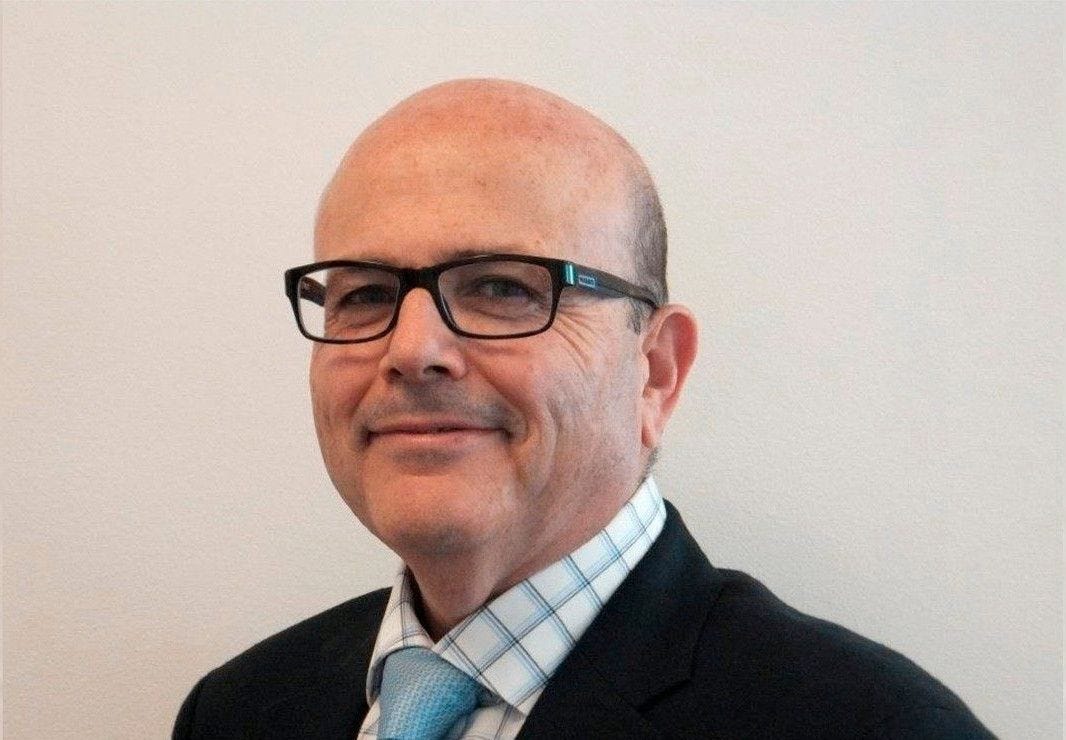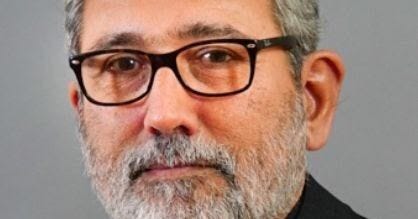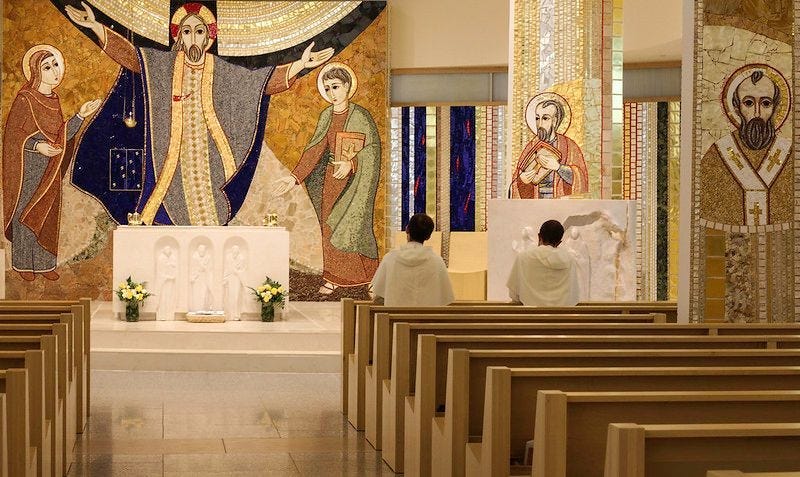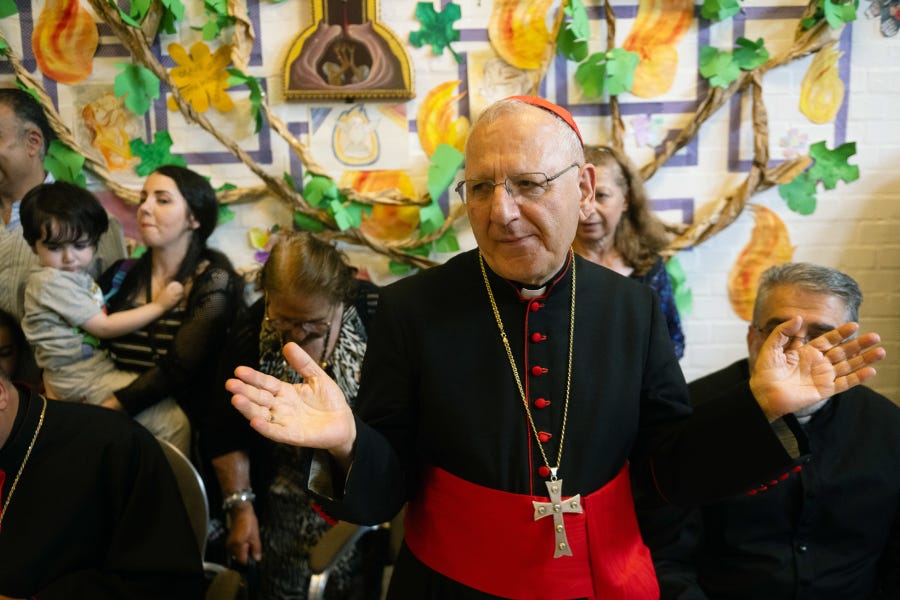
Fr. Juan Antonio Guerrero Alves will step down on Thursday after three years as prefect of the Vatican’s Secretariat for the Economy. The 63-year-old Spanish Jesuit will be succeeded by a layman, Maximino Caballero Ledo, the institution’s secretary general since August 2020.
The Holy See press office said Nov. 30 that Pope Francis thanked the priest “for the dedication he has shown in his service to the Holy See.”
“Fr. Guerrero succeeded in putting the economy in good order; it was a difficult and demanding job that has borne much fruit,” it said. “The Holy Father assures him of his prayer.”
Caballero, an economist, is the first lay person to be appointed head of a Vatican institution since the pope’s promulgation of a new apostolic constitution for the Roman curia earlier this year, though he is not the first layman to serve in such a role.
That constitution, Praedicate evangelium, was issued by Pope Francis in March and contained the general provision that “any member of the faithful can preside over a dicastery,” according to the nature of the role and the dicastery’s work.
Vatican News reported that Fr. Guerrero had written to colleagues explaining that he was leaving the post on Dec. 1 for health reasons.
“You are aware that I have undergone surgery during the course of this year, and as a result of this I am undergoing medical treatment that has side effects that make it particularly difficult for me to carry out a task as demanding as the one I am entrusted with, and that requires a greater physical efficiency and mental concentration than what I have at this time,” he wrote.
“We have helped to have clearer rules,” the Jesuit told colleagues at the department, “although there are still many things to do: the centralization of investments, a subsequent regulation and simplifications of the bidding process, to make them more transparent and agile; the implementation of the Human Resources Department, which is a new challenge to improve working conditions and climate in the Holy See; programming better use of computer protocols.”
Vatican News said that Fr. Guerrero and his successor, who both hail from the Spanish city of Mérida, had enjoyed a “long friendship.”
Caballero, a married father of two, moved to the U.S. in 2007, working for the healthcare company Baxter International, before Fr. Guerrero invited him to join him at the Vatican.
Pope Francis named Fr. Guerrero to lead the Secretariat for the Economy on Nov. 14, 2019. Fr. Arturo Sosa, the superior general of the Society of Jesus, reportedly asked the pope not to appoint Fr. Guerrero as a bishop so that he could resume his normal service as a Jesuit after he had completed his term at the Vatican.
Pope Francis established the Secretariat for the Economy in 2014 to help supervise the economic activities of Vatican institutions. Cardinal George Pell served as its first prefect until taking a leave of absence in 2017 to return to Australia to defend himself against allegations of sexual abuse. He was vindicated by the country’s High Court in 2020.
Presenting the annual balance sheet for the Holy See in 2020, Guerrero said that “the economy of the Holy See should be a house of glass,” however his term, and that of his predecessor, have been largely overshadowed by a series of interconnected financial scandals at the Vatican.
📰
Francis created the department in 2014 as “directly responsible to the Holy Father and is competent for the economic control and vigilance” over all departments of the Roman curia, Vatican City state and Holy See in matters “that in whatsoever manner concerns such material.”
However, despite a sweeping mandate for implementing financial reforms by the pope, the Secretariat for the Economy has repeatedly clashed with the Vatican’s Secretariat of State over control and oversight of the Holy See’s investments, and departmental budgeting and expenditures.
In 2016, the Secretariat of State, through the then sostituto Cardinal Angelo Becciu, moved to block and then cancel an independent audit of the entire Roman curia, ordered by the Secretariat for the Economy and set to be conducted by the firm PricewaterhouseCooper.
Caballero’s appointment means that, for the first time, the heads of all three of the Vatican’s most prominent financial departments will be laymen.
The current auditor general of the Vatican is Alessandro Cassinis Righini, who was appointed in May last year. Since 2019, the head of the Holy See’s Financial Supervisory and Information Authority is Carmelo Barbagallo; Pope Francis received both men in an audience on Saturday morning.
While Caballero is taking over from Fr. Guerrero because of health reasons, lay leaders of Vatican economic departments have often departed under uncomfortable circumstances.
René Brülhart, the Swiss lawyer who led the ASIF until late 2019, had a separate contract to act as a consultant to the Secretariat of State while his department was charged with overseeing Vatican financial institutions. He is currently on trial in Vatican City for abuse of office.
Barbagallo’s predecessor as auditor general, Libero Milone, was forced from office under threat of criminal prosecution in 2017. Cardinal Angelo Becciu accused Milone of “spying” on the financial affairs of senior curial officials.
In November this year, Milone announced he is suing his former department, the Office of the Auditor General, and the Secretariat of State, for wrongful dismissal and alleging he was forced from office because he discovered evidence of widespread corruption among senior Vatican figures and departments.
The Vatican City Office of the Promoter of Justice reportedly reopened a criminal investigation into the former auditor in response.




